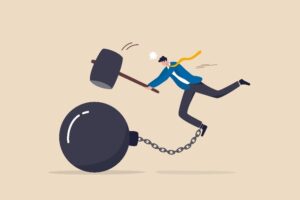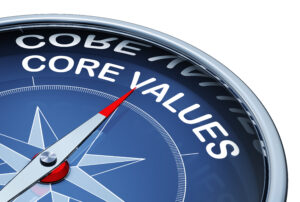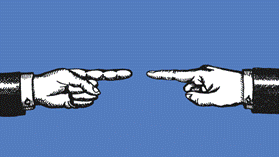Blog

Are You Pretending to Be Something You’re Not?
Article Summary: One of the traps we can fall into in life is pretending to be someone or something we’re not. This article addresses why we do it, its consequences, and how to stop doing it so much. +++ One of the traps we can fall into in life is pretending to be someone or something we’re not. We may wear a mask for others, adopt a persona, or impersonate someone we think is more appealing. There are many reasons why we do this. It’s quite common. But it can lead to big problems down the road. Examples of

The Trap of Losing Yourself
These days, will all the pressures and pushes we feel, it can be easy to lose ourselves. We get consumed by events or other people’s priorities, surrendering our agency or initiative. We can lose ourselves so much that we hardly recognize ourselves. Or let our own values, priorities, and aspirations fall by the wayside. We can become accustomed to suppressing our needs, desires, or feelings. Or lose sight of who we really are and what we want in life. We can stop investing in our learning and growth, stop pursuing our dreams and passions, or neglect our inner life so

The Problem with Neglecting Our Inner Life
These days with our full schedules and device addictions, it can be easy to neglect our inner life. We can get caught up in activities and busyness while losing touch with ourselves. That’s a big mistake—and likely to lead to major problems down the road. There are many different ways we can think about and experience an inner life. It can be a sense of inner guidance, an inner voice, inner wisdom, or having a rich inner world. For some, it can involve feeling a sense of our innermost being—or the feeling that “This is the real me.” It can

Why We Stay in Bad Jobs Too Long
The covid-19 pandemic raised big questions about the way we live and work. Amidst the turmoil, we’re wise to take a fresh look at our work and consider whether changes are in order. The “Great Resignation” demonstrated that many of us have been dissatisfied with our jobs, with millions quitting each month. The trend looks set to continue, especially among younger workers. According to a 2022 LinkedIn study of more than 20,000 U.S. workers, 25% of Gen Zers and 23% of Millennials reported hoping or planning to leave their current employers within the next six months. Many have fallen into

The Problem with Lack of Focus—And How to Fix It
Article Summary: These days, we’re bombarded with digital distractions, and it’s detracting from our ability to get things done, our leadership effectiveness, and our quality of life. This article notes 15 of the most important benefits of focus and provides 24 actionable strategies for developing and maintaining our focus. “Things which matter most must never be at the mercy of things which matter least.” -Johann Wolfgang von Goethe These days it feels like the world is dead-set against our having focus. We’re bombarded with digital distractions. There are near-constant requests for our attention, many driven by algorithms that have cracked

The Trap of Bad Habits–And How to Break Them
We go through life assuming we’re in the driver’s seat but often there are other important influences driving our actions. One of them is habits–the things we do often and regularly, sometimes without knowing that we’re doing them. The function of habit learning occurs in the basal ganglia, a group of subcortical nuclei in our brains. A Duke University researcher estimated that more than 40 percent of the actions we take each day are based on habits, not decisions. Our brains consume a tremendous amount of energy, so we’re wired to preserve that energy whenever possible. If we can avoid

The Trap of Dissatisfaction–And Its Surprising Upside
“I can’t get no satisfaction.” -The Rolling Stones We all go through hard times in life, with setbacks and disappointments. It only becomes a trap if we experience a chronic sense of dissatisfaction—not being content or at peace with what we have. It’s a trap if we develop an enduring sense of disappointment, of never feeling at peace. Or a chronic craving or dwelling on things we lack. In this state, we’re missing a sense of acceptance, of contentment, of serenity. Such dissatisfaction can be a sign of maladaptive perfectionism—when our personal performance standards are hopelessly high and we’re extremely

How to Discover Your Core Values
Our values are what we consider most important in life—what’s most worthy and valuable to us. Values can also be beliefs, moral principles, or standards of behavior (e.g., commitments for how we will treat each other). In other words, what we believe and stand for. Our values should guide our choices and behavior, helping us determine how to act in various situations. What to pursue and defend. And what not to. “Values are basic and fundamental beliefs that guide or motivate attitudes or actions. They help us to determine what is important to us. Values describe the personal qualities we

How to Be More Decisive in Your Life and Leadership
“Should I stay or should I go?” -the Clash We make many decisions every day. Many are trivial, but some are consequential and taxing. Which career to pursue (or transition into). When to make a big move. Who to live with, work with, or hire. Whether to start a new venture. To live and lead well, we must get good at making decisions. On the leadership front, do we want leaders who wallow and waffle? Or leaders who move forward despite uncertainty; home in quickly on the key issues; actively gather input before deciding; involve others in decisions; invoke their

How to Stop Catastrophizing–Managing Our Minds
“The sky has finally fallen. Always knew it would.” -Eeyore, from Winnie the Pooh Things have been tough in the last few years. Pandemic. Inflation. War. Many are suffering mightily. Maybe you’ve been suffering too. But are you complicit in your own suffering? Are you making things, as tough as they may be already, even worse? One of the ways we do this is through “catastrophizing.” Catastrophizing is a form of cognitive distortion, in which we assume the worst and blow things out of proportion. We imagine the worst possible outcome and generate an exceptionally negative expectation of future events.

How to Build Confidence in Yourself and Your Leadership
Confidence is an enigma for many of us. We know it can help us in many ways. And we hold it in high regard, knowing it can make a big difference. Yet we tend to view it as something innate–something some people have and others don’t. The truth is that, while some people have more of a disposition toward confidence than others, it’s something we can all build systematically. And we should. Why? When we’re confident, we have conviction that we can succeed. Contrary to what many people believe, confidence isn’t a fixed trait. We’re not either born with it

The Complacency Trap
One of the most insidious traps we can fall into in life and work is that of complacency—a state of easy contentment, with a lack of concern about or awareness of problems or risks. Complacency can prevent us from recognizing risks, trying harder, and making improvements. Examples abound. We can be complacent about our health—or the health of our loved ones. Or complacent about our relationships. About our work, team, leadership, or organization. Complacent about our democracy and planet. How to know when we’ve fallen into the complacency trap? 11 Signs of Complacency When we’re complacent, we: Take things

The Trap of Blaming Others
When things aren’t going your way, it may be tempting to deflect attention from your own role in things and blame others. Perhaps you’re blaming your spouse. Or boss. Perhaps you’re blaming a friend or colleague. Or the economy or inflation—or politicians, the media, or a rival political party. Your parents, or your circumstances. Blaming may give you a feeling of satisfaction as you look outside for responsibility and wallow in the unfairness of it all. But that feeling is fleeting. In the meantime, you haven’t moved forward at all. In fact, you’ve moved backward. “No good comes from blame.”

The Benefits of Systematic Personal Development
Personal development entails efforts to improve yourself—to develop your potential and capabilities. With systematic personal development, you can improve nearly all aspects of your life. “Personal development refers to activities that improve self-knowledge and identity, develop talents and potential, build human capital and employability, enhance quality of life, and contribute to the realization of dreams and aspirations.” -Bob Aubrey, Managing Your Aspirations You can also leverage personal development to address challenges in your life, such as: dullness and monotony in your days unfulfilled dreams and ambitions feeling stuck or uncertain about what’s next Personal development involves both inner and outer

What Are You Avoiding?
Avoidance. We all do it, whether it’s keeping away from someone or not doing something. What are you avoiding? Sometimes we change the subject when it drifts into awkward territory. Other times we talk around hard topics. Or we put off that tough task. Avoidance is a coping mechanism. Sometimes it’s helpful. Like when we see a downed power line or a snake. It’s an inheritance from our evolutionary biology. Our nervous system gives us powerful signals to avoid danger, thus increasing our chances of survival. Avoidance is natural. “Truly, there is nothing more common, routine, and human than avoiding

